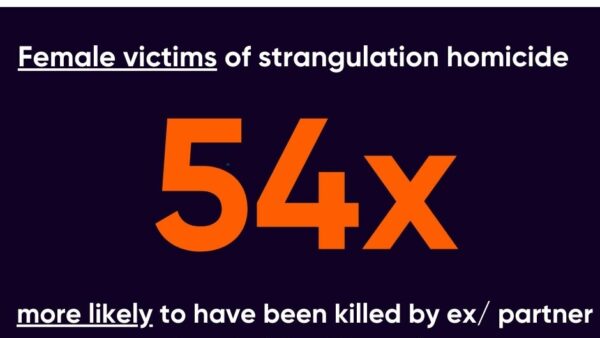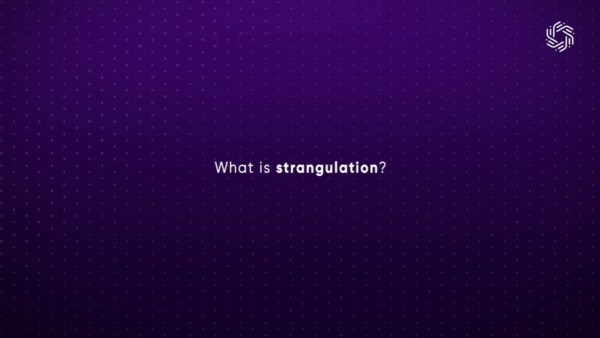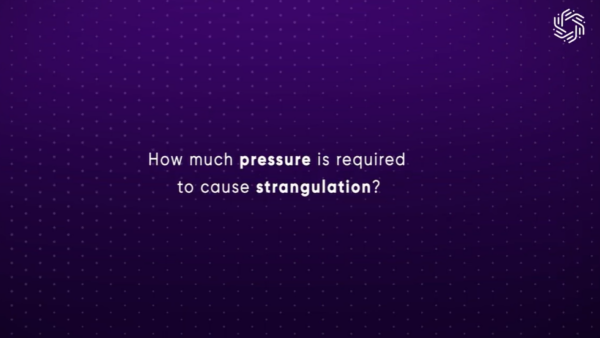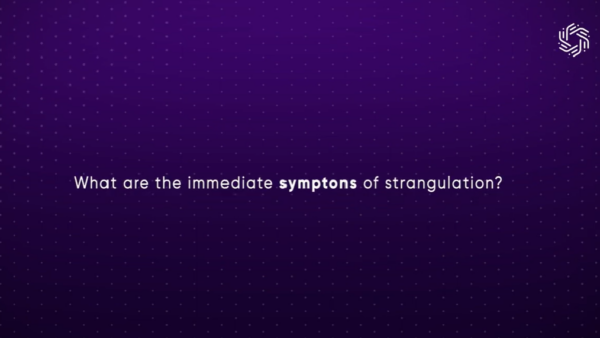IFAS Resources

Confidentiality and Information Sharing When Dealing with Adult Strangulation Patients
- ● Jul, 2025
- ●
- ●
This document aims to assist clinicians in making decisions about information sharing/safeguarding referrals when dealing with adult patients who either give a history of, or are suspected to have experienced, strangulation.

Guidelines for clinical management of non-fatal strangulation in acute and emergency care services
- ● Jul, 2025
- ●
- ●
Guidelines on clinical management of non-fatal strangulation, developed by an Intercollegiate Group in response to increased understanding of its dangers and prevalence and in the absence of existing UK guidelines. Guidelines reviewed in July 2025.

Our response: Government to criminalise the depiction of strangulation in pornography
- ● Jun, 2025
- ●
- ●
Our research shows that there is no safe way to strangle. Criminalising the depiction of strangulation in pornography sends a clear message about the serious harm strangulation can cause.

Police Data on Strangulation and Suffocation Offences
- ● Jun, 2025
- ●
- ●
We requested data from the Home Office in 2023 and 2024 pertaining to the number of strangulation and suffocation offences recorded by the police. This report presents a comparative analysis of the data obtained in year 1 and year 2.

Press Release: 3 years of strangulation and suffocation as a standalone offence
- ● Jun, 2025
- ●
- ●
On June 7 2025, we will mark 3 years since strangulation & suffocation became a standalone offence in England & Wales as part of the Domestic Abuse Act (2021). There is still much work to be done to better protect victims/ survivors of strangulation.

Strangulation in UK Media
- ● Jun, 2025
- ●
- ●
Between November 2022 and November 2024, the IFAS team obtained online news articles using search terms: strangulation UK, choking UK, strangulation legislation UK. This series Strangulation in UK Media analyses the titles of these articles.

UK Prevalence of Strangulation
- ● May, 2025
- ●
- ●
This rapid read provides an overview of the latest data and statistics on strangulation in the UK, and how IFAS aims to address gaps in knowledge & inform best practice.

Information Leaflet for Victims of Strangulation
- ● May, 2025
- ●
- ●
Our guidance for victims/survivors of strangulation is now available in English, Dutch, Welsh, Polish, Portuguese, Romanian, Urdu and Punjabi in plain text for accessibility.

IFAS responds to the VKPP Domestic Homicides and Suspected Victim Suicides report
- ● Mar, 2025
- ●
- ●
Read our response to the report as it builds on our existing research that highlights non-fatal strangulation (NFS) as a risk factor in domestic homicide and suspected victim suicides following domestic abuse.

Reclaiming My Voice – a lived experience of strangulation
- ● Mar, 2025
- ●
- ●
This short video & report demonstrates and celebrates the last 2.5 years of IFAS working with survivors. We hope to show others that you can reclaim your voice & for practitioners to see the value of lived experience in addressing VAWG.

Femicide Census (March 2025) - IFAS Response
- ● Mar, 2025
- ●
- ●
On 5th March 2025 the Femicide Census published key findings from their 2,000 Women Report. Strangulation was used in 27% of femicide killings - see our response to this invaluable report.

Report on Strangulation During Sex in the UK
- ● Dec, 2024
- ●
- ●
A report on the findings of a short survey conduced in October 2024 which aimed to understand the prevalence of strangulation/choking during sex in the UK.

FiLiA Podcast: Tackling Strangulation: Working Together to Save Lives
- ● Dec, 2024
- ●
- ●
Sally Jackson, FiLiA Trustee; Bernie Ryan, CEO of IFAS and Marianne McGowan, Survivor Liaison and Research Worker, discuss the dangers of strangulation, who it affects, and what we can do to raise awareness of the realities of the danger it presents.

Report 4: A Comparative Analysis of 150 Domestic Homicide Reviews
- ● Oct, 2024
- ●
- ●
The fourth report in the Domestic Homicide Review (DHR) series is an analysis of 75 domestic homicide reviews (DHRs) where the method of killing was strangulation and 75 DHRs where the method of killing was stabbing with a sharp instrument.

Strangulation and ‘Choking’ Factsheet
- ● Oct, 2024
- ●
- ●
Our factsheet provides details on the definition of strangulation, the health implications and what the law says about strangulation.

An analysis of Domestic Homicide Reviews with fatal strangulation (Report 3)
- ● Aug, 2024
- ●
- ●
This report provides a detailed exploration into demographics, circumstances of the homicides, and an analysis of domestic abuse histories whereby the method of killing in the domestic homicide was strangulation.

Non-fatal strangulation proforma (IFAS - July 2024)
- ● Jul, 2024
- ●
- ●
This proforma focuses on the non-fatal strangulation (NFS) elements of an examination and as such should be used as an adjunct to other clinical documentation e.g., SARC proforma/ED/custody proforma etc.

Guidance for Police Management of Strangulation
- ● May, 2024
- ●
- ●
Guidance for the police management of strangulation cases, intended to enhance the response to strangulation. This is under consultation until Friday 26th July. Download the guidance and respond to our consultation survey.

Experiences of strangulation in the sex industry
- ● May, 2024
- ●
- ●
Survey to help better understand the experiences of strangulation in the sex industry in the UK.

Strangulation Data Capture Guidance
- ● Apr, 2024
- ●
- ●
Guidance produced by IFAS to support front-line services in responding to, monitoring, and reporting on strangulation. This guidance has been supported by findings from an IFAS survey, also reported in this guidance document.

Prosecution and Sentencing of Strangulation and Suffocation Offences Report 2024
- ● Apr, 2024
- ●
- ●
A report into the latest data surrounding the prosecution and conviction of strangulation and suffocation cases in England and Wales from the first year post-legislation (up to 6th June 2023).

VKPP Year 3 Report - IFAS Response
- ● Apr, 2024
- ●
- ●
A short overview of general findings from three years of data* analysed by the Vulnerability Knowledge and Practice Programme (VKPP).

Killed by strangulation: data from ONS year ending March 2023
- ● Apr, 2024
- ●
- ●
An overview of homicide data published by the Office for National Statistics (ONS) on strangulation as a method of killing year ending March 2023.

Strangulation and Suffocation Offences Police Data Report 2024
- ● Feb, 2024
- ●
- ●
A report into the latest data surrounding strangulation and suffocation cases recorded by police forces across England and Wales in the first year post-legislation (up to June 6th, 2023).

An analysis of Domestic Homicide Reviews with a history of non- fatal strangulation (Report 2)
- ● Feb, 2024
- ●
- ●
This report provides a detailed exploration into the victims and perpetrators of non-fatal strangulation, reporting of non-fatal strangulation to the police and the use of formal domestic abuse risk assessments in cases of non-fatal strangulation.

An analysis of Domestic Homicide Reviews with fatal suffocation and smothering (Report 1)
- ● Feb, 2024
- ●
- ●
This report provides a detailed exploration into victim/perpetrator demographics and offers new insights into suffocation and smothering in domestic homicide, including the associated patterns and characteristics of such cases.

Report into Strangulation, Suffocation, Asphyxiation & Smothering Homicides in England &Wales from 2011- 2021
- ● Sep, 2023
- ●
- ●
There were 342 strangulation homicides from 2011 to 2021 and 75% of these victims were female. Overall, female victims of strangulation homicide aged 16+ were 54 times more likely to have been killed by an ex-partner or partner than a male victim.

What is strangulation?
- ● Aug, 2023
- ●
- ●
What is strangulation, the health impact of strangulation and the prevalence of strangulation in England and Wales.

How much pressure is required to cause strangulation?
- ● Aug, 2023
- ●
- ●
Listen to Dr Cath White as she details what actually happens to the body when someone is strangled.

What are the immediate symptoms of strangulation?
- ● Aug, 2023
- ●
- ●
Dr Cath White details what the immediate, short term and long term health impacts of strangulation and how a victim may present.

Strangulation and Suffocation Offences ONS Data Report 2022
- ● Jul, 2023
- ●
- ●
On 7 June 2022, new standalone offences regarding non-fatal strangulation and suffocation came into effect in England and Wales. This report provides an overview of the data received from Office of National Statistics (ONS) on the new offences.

ONS Data on Non-Fatal Strangulation & Suffocation June - December 2022
- ● Jun, 2023
- ●
- ●
The Institute submitted a freedom of information request to the Office for National Statistics to obtain data on the new offences. The questions asked can be found in this short report. This report provides an overview of the data received from ONS.

Access the latest guidance on non-fatal strangulation in physical and sexual assault
- ● Apr, 2023
- ●
- ●
Access our guidance on non-fatal strangulation in physical and sexual assault and explore the variety of signs and symptoms victims/survivors of strangulation may have.

What is the Institute For Addressing Strangulation and what are their aims?
- ● Mar, 2023
- ●
- ●
Watch our latest video on the journey of creating the Institute and the ambitious plans to ensure all victims/survivors of strangulation receive the best response.

UK prevalence of strangulation and suffocation
- ● Feb, 2023
- ●
- ●
1 in 4 women accessing community and refuge service reported having experienced strangulation or suffocation. Read the latest data on prevalence of strangulation and how IFAS aims to address gaps in the knowledge & inform best practice.
